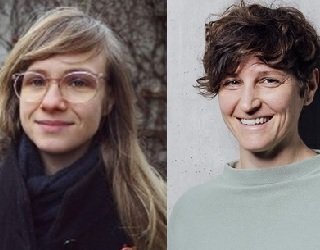Gut durch den Hochschul-Alltag: diversitätssensibel, vor(ur)teilsbewusst und inklusiv
Kursstart: 1. Oktober 2024
Gut durch den Hochschul-Alltag: diversitätssensibel, vor(ur)teilsbewusst und inklusiv
Christina Fischer-Lessiak & Lisa Scheer, Koordinationsstelle für Geschlechterstudien und Gleichstellung
Wissenschaftliche Einordnung:
Kursstart: 1. Oktober 2024
Gut durch den Hochschul-Alltag: diversitätssensibel, vor(ur)teilsbewusst und inklusiv
Christina Fischer-Lessiak & Lisa Scheer, Koordinationsstelle für Geschlechterstudien und Gleichstellung
-
Umfang: 9 Lektionen
-
Aufwand: 2 Stunden/Woche
-
Teilnehmende aktuell: 656
-
Lizenz: CC BY-SA 4.0
-
Kursstart: 1. Oktober 2024
-
Kursende: -
-
Status aktuell: Laufender Kurs
-
Verfügbare Sprachen:
Details zum Kurs
Inhaltsübersicht
Kursinhalt
Der
Hochschulalltag wird von Mitarbeitenden und Studierenden unterschiedlich
erlebt.
Viele können sich an der Hochschule verwirklichen, fühlen sich gefördert
und
passend gefordert. Einige fühlen sich (manchmal) nicht ernst und mit
ihren
Bedürfnissen nicht wahrgenommen oder sogar überfordert. Dies hat mit Benachteiligung und Privilegierung zu tun, mit Vorteilen und Vorurteilen, die
ebenso Teil
des Hochschulalltags sind wie Diversität.
In diesem MOOC wird die Vielfalt an Erlebnissen im (Hochschul-)Alltag sichtbar gemacht. Die Inhalte der Lektionen ermöglichen die Auseinandersetzung mit Machtverhältnissen wie Sexismus, Rassismus, Klassismus u.v.m., und zwar sowohl auf persönlicher wie auch auf wissenschaftlicher Ebene. Es werden Anregungen zur sensibleren
Wahrnehmung und zur Reflexion der eigenen Position innerhalb der existenten
Machtverhältnisse angeboten. In den neun Lektionen des MOOCs werden mögliche
Herausforderungen im Hochschulalltag, die mit Gender, Race, Klasse,
BeHinderung, Religion etc. zu tun haben, aufgezeigt. Erklärungen über all das, was im Miteinander an der Hochschule
passiert, gibt es ebenso wie (Handlungs-)Anregungen für ein inklusives, bias-
und diskriminierungsarmes Miteinander. Diese Anregungen sind auch für Lebens- und Arbeitsbereiche außerhalb der Uni nützlich.
Lernziele
Ziel des Kurses ist es, die im Studien- und Arbeitsalltag anzutreffenden Machtverhältnisse und Diskriminierungen (Sexismus, Rassismus, Ageismus, Ableismus, Klassismus ...) zu thematisieren und anhand von Beispielen zu erklären. Die Inhalte regen zum Beobachten, Nachdenken und Reflektieren an, unterstützen den Wissensaufbau und enthalten Handlungsanregungen für einen inklusiveren Hochschulalltag.
Nach
Absolvierung dieses Kurses
- haben Sie Ihr Verständnis von gängigen Begriffen und
Zusammenhängen ausgebaut,
- können Sie Machtverhältnisse und Diskriminierung anhand von Beispielen erkennen und im Alltag besser wahrnehmen,
- können Sie Zusammenhänge zwischen den Machtverhältnissen finden,
- haben Sie Ihr Vor(ur)teilsbewusstsein geschärft,
- können Sie erkennen, inwiefern und wann Sie selbst privilegiert bzw. benachteiligt sind,
- können Sie im Hochschulalltag diversitätssensibler und solidarischer handeln.
Vorkenntnisse
Keine
Kursablauf
Der Kurs umfasst neun Lektionen:
- Lektion
1: Themeneinstieg
- Lektion 2: Gender, Sexismus, sexualisierte Diskriminierung und Gewalt
- Lektion 3: Jenseits von Heteronormativität
- Lektion
4: Rassismus und Kritisches Weiß-Sein
- Lektion
5: Antimuslimischer Rassismus und Antisemitismus
- Lektion 6: Klassismus und Habitussensibilität
- Lektion 7: Behinderung, psychische Gesundheit und digitale Barrierearmut
- Lektion 8: Altersdiskriminierung
- Lektion 9: Abschluss
Jede Lektion beinhaltet mindestens zwei Videos, die wichtige Aspekte jedes Themas abdecken. Außerdem finden Sie in jeder Lektion Ressourcen zum Selbststudium und freiwillige Aufgaben, die Ihren Lern- und Reflexionsprozess unterstützen. Ebenso erhalten Sie Literaturempfehlungen zu allen Themen und schließen jede Lektion mit einem Multiple-Choice-Quiz ab.
Zertifikat
Für die aktive Teilnahme am Kurs erfolgt bei Abschluss die Ausstellung eines automatisierten Zertifikats, welches Ihren Benutzernamen, den Kursnamen und die abgeschlossenen Lektionen beinhalten. Es wird darauf hingewiesen, dass es sich nur um eine Bestätigung handelt, die aussagt, dass zumindest 75% der gestellten Selbstüberprüfungsfragen richtig beantwortet wurden.
Für jede einzelne abgeschlossene Lektion erhalten Sie außerdem einen Badge.
HINWEIS:
Der MOOC ist öffentlich und frei zugänglich, zusätzlich ist er aber auch Teil der Lehrveranstaltung „Diversität, Inklusion und Vor(ur)teile in Bildung und Alltag“ (LV-Nr. ETD.01015UB) an der Universität Graz. Für die Absolvierung der Lehrveranstaltung ist es notwendig, dass Sie sich dafür in UNIGRAZonline anmelden.
Lizenz
Zusätzliche Inhalte
Wir danken auch den Expert*innen und Ersteller*innen der Videos, die wir
nicht selbst produziert haben, sondern aus anderen MOOCs eingebaut
haben.
Kursleitung

Christina Fischer-Lessiak & Lisa Scheer, Koordinationsstelle für Geschlechterstudien und Gleichstellung
Christina Fischer-Lessiak ist Mitarbeiterin der Koordinationsstelle für Geschlechterstudien und Gleichstellung der Universität Graz mit dem Fokus auf Weiterbildung. Lisa Scheer war als Mitarbeiterin der Koordinationsstelle für Geschlechterstudien und Gleichstellung der Universität Graz u.a. für den AntiBias-Zirkel zuständig, der für den MOOC hauptverantwortlich ist.
Expert*innen, die zum MOOC beigetragen haben:
Dr.in Simone Adams, Zentrum für digitales Lehren und Lernen, Universität Graz
Jessica Braunegger, BA, Masterstudentin der Interdisziplinären Geschlechterstudien, Universität Graz
Christina Cortolezis, B.A., Masterstudentin der Interdisziplinären Geschlechterstudien, Universität Graz
Parmida Dianat, BA, Masterstudentin der Europäischen Ethnologie, Universität Graz
Manuel Feldbaumer, MEd BEd BA,
Zentrum für digitales Lehren und Lernen, Universität Graz
Christina Fischer-Lessiak, BA. MA., Koordinationsstelle für Geschlechterstudien und Gleichstellung, Universität Graz
Mag. Gregor Fischer-Lessiak, Europäisches Trainings- und Forschungszentrum für Menschenrechte und Demokratie der Universität Graz (UNI-ETC)
Susanne Gartler, Bachelorstudentin Lehramt Sekundarstufe (AB), Universität Graz
Magdalena Laura Halb, Arbeitskreis für Gleichbehandlungsfrage, Universität Graz
Lukas Georg Hartleb, BA. MA., Schreibzentrum, Lehr- und Studienservices, Universität Graz
Dr.in Barbara Hey, MBA, Koordinationsstelle für Geschlechterstudien und Gleichstellung, Universität Graz
Diana Holler, BA, Masterstudentin der Global Studies, Universität Graz
Victoria Hubner, Bachelorstudentin Philosophie und Lehramt Sekundarstufe (AB), Universität Graz
Mag.a Johanna Kerschbaumer, Arbeitskreis für Gleichbehandlungsfrage, Universität Graz
Susanne Kink-Hampersberger, MA, Institut für Educational Governance, Pädagogische Hochschule Steiermark
Špela Kisilak, BA, Masterstudentin der Interdisziplinären Geschlechterstudien, Universität Graz
Thomas Klebinder, Bachelorstudent Lehramt Sekundarstufe (AB), Universität Graz
Assoz. Prof.in Dr.in Ulla Kriebernegg, Zentrum für Interdisziplinäre Alterns- und Care-Forschung, Universität Graz
Timna Kriechbaum, Bachelorstudentin Lehramt Sekundarstufe (AB), Universität Graz
Univ.-Prof. Dr. Gerald Lamprecht, Centrum für Jüdische Studien, Universität Graz
Mag.a Ruth Lauppert-Scholz, MA MEd, Granatapfel Kulturvermittlung
Prof.in Mag.a Barbara Levc, Lehrende für Inklusion an der PH Steiermark, Zentrum Integriert Studieren Universität Graz und PH Steiermark
Mag.a Mevlida Mešanović, BEd, Institut für Katechetik und Religionspädagogik, Universität Graz
Teresa
Molinaro, Bachelorstudentin Kunstgeschichte und Lehramt Sekundarstufe (AB), Universität Graz
Lena Riesenberger, Bachelorstudentin Anglistik/Amerikanistik und Lehramt Sekundarstufe (AB), Universität Graz
Robert Riesenhuber, BSc, Masterstudent der Global Studies, Universität Graz
Sarah Sadeghi, BA, Masterstudentin der Global Studies, Universität Graz
Gabriele Schrümpf, BA, Masterstudentin der Europäischen Ethnologie, Universität Graz
Dr. Thomas Schweitzer, NAWI Graz Koordinationsbüro, Universität Graz
Victoria Shmidt, Ph.D., Institut für Geschichte, Universität Graz
Katharina Veits, BA, Masterstudentin der Interdisziplinären Geschlechterstudien, Universität Graz
Cordula Weitgruber, BA BA BA, Masterstudentin der Europäischen Ethnologie, Universität Graz
Mag.a Eva Wenig, Institut für Katechetik und Religionspädagogik, Universität Graz
Dr.in Sophie
Whybrew M.A., Zentrum für Genderforschung und Diversität, Kunstuniversität Graz
Ilse Wieser, Koordinationsstelle für Geschlechterstudien und Gleichstellung, Universität Graz
Chia-Tyan Yang, Pianistin und ehrenamtliche Generalsekretärin der gemeinnützigen Organisation „Live Music Now Steiermark“
Mag.a Edith Zitz, inspire - Bildung und Beteiligung
Daniel Zivkocić, Masterstudent der Global Studies, Universität Graz
Partner:innen
-
Universität Graz
